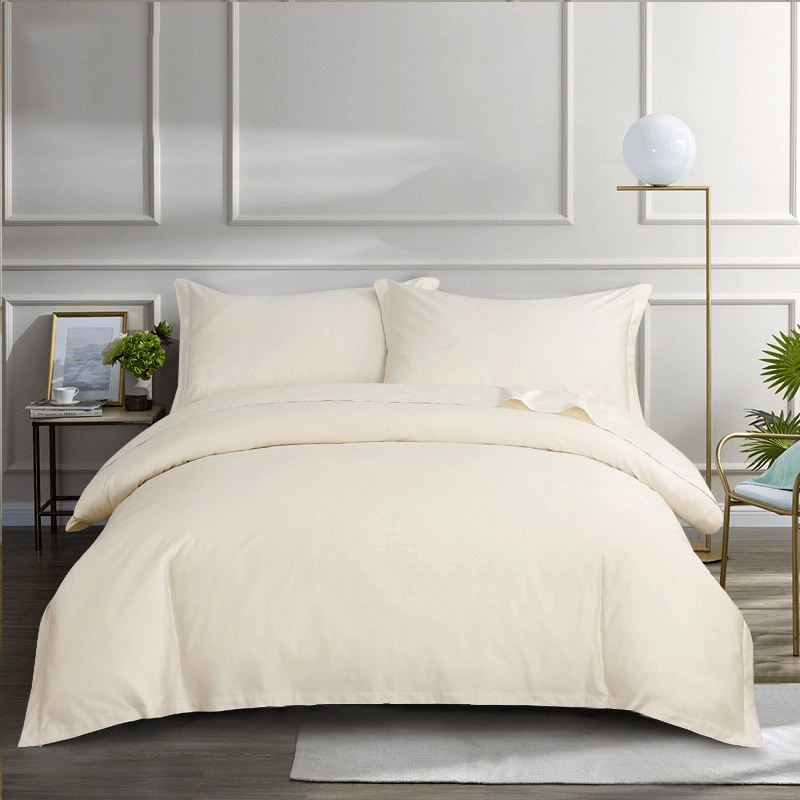Views: 210 Author: Site Editor Publish Time: 2025-08-04 Origin: Site








When it comes to running a successful hospitality business, the quality of your hotel linens can significantly influence guest satisfaction and overall reputation. But the question often arises: where to buy hotel linen that meets the highest standards of durability, comfort, and luxury? Whether you manage a boutique hotel, a large resort, or a chain of accommodations, sourcing the right hotel linens is both an art and a science.
This comprehensive guide explores the essential factors to consider when purchasing hotel linens, highlights the best places to buy, and answers frequently asked questions to ensure you make an informed decision that aligns with your budget and service goals.
Hotel linens are much more than simple bed sheets and towels. They encompass a broad range of textile products, including pillowcases, duvet covers, mattress protectors, bathrobes, and table linens. The quality of these items directly impacts guest comfort, hygiene, and the overall ambiance of your establishment.
Investing in premium hotel linens means selecting fabrics that are durable yet soft, easy to maintain, and resistant to frequent washing cycles. Common materials include 100% cotton (particularly Egyptian or Pima cotton), cotton blends, linen, and microfiber. Each type has unique properties affecting feel, durability, and cost.
Poor quality linens can lead to quicker wear and tear, color fading, and uncomfortable textures, which guests notice instantly. This not only affects repeat business but can increase replacement costs over time. Hence, understanding the characteristics of hotel linens is crucial before exploring sourcing options.
When looking to purchase hotel linens, several vital criteria must guide your selection:
Material composition dictates softness, breathability, and durability. Cotton with a thread count between 200-400 is generally preferred in hotels, balancing softness with strength. Higher thread counts aren’t always better, as extremely high counts can reduce airflow.
The weave affects the texture and durability of linens. Percale offers a crisp, matte finish and is breathable, ideal for warm climates. Sateen weave provides a silky, lustrous finish that many guests associate with luxury.
Hotel linens must endure daily laundering at high temperatures. Choosing materials that withstand such wear without losing integrity is essential. Also, consider ease of care—linens that dry quickly and resist wrinkles save time and energy.
Standardized sizing ensures linens fit mattresses and pillows properly, preventing discomfort and unsightly appearance. Custom sizes might be necessary for specialty beds.
The supplier’s reputation, delivery times, and customer service also impact the purchasing decision. Consistent quality and availability are critical for hotels operating at full capacity.

Finding the right vendor can be daunting given the myriad of options. Here are the primary channels to consider:
Wholesale suppliers specialize in bulk sales of hotel-grade linens. They offer competitive pricing and often provide customization options such as embroidery or branding. Wholesale suppliers are ideal for hotels needing large volumes regularly.
Companies focusing exclusively on hospitality textiles understand the industry’s unique needs. They provide tailored solutions, including durable linens meeting specific hospitality standards and certifications (like OEKO-TEX).
Platforms like Alibaba, Amazon Business, and others offer access to multiple vendors globally. While convenient, quality and reliability vary greatly, so thorough vetting and sample testing are recommended.
Sourcing locally can reduce shipping times and support regional businesses. Local manufacturers can often provide quicker turnaround and personalized service but may come with a higher price tag.
Hospitality and textile trade shows present opportunities to meet suppliers in person, examine products firsthand, and negotiate terms. These events are useful for networking and discovering new innovations.

To simplify the purchasing process, here is a detailed FAQ section addressing common concerns:
| Question | Answer |
|---|---|
| What is the best fabric for hotel linens? | 100% long-staple cotton (Egyptian or Pima) is considered the best due to softness, durability, and breathability. |
| How often should hotel linens be replaced? | Typically every 18-24 months, depending on quality and usage frequency. |
| Are thread count and softness directly correlated? | Not always; weave type and fiber quality also significantly affect softness. |
| Can I buy hotel linens in small quantities? | Yes, but bulk purchases usually come with better pricing and supplier terms. |
| How to ensure linens meet hygiene standards? | Choose suppliers that offer antimicrobial treatments and certifications, plus linens washable at high temps. |
| What colors are preferred for hotel linens? | White is the most popular due to its association with cleanliness and ease of bleaching, though some hotels use neutral tones. |
Choosing the right supplier is critical to maintain consistency and quality in your hospitality business. Here are essential steps to evaluate potential suppliers:
Request Samples: Always test fabric samples for texture, durability, and colorfastness before committing to a bulk order.
Check Certifications: Look for OEKO-TEX or other eco-friendly certifications to ensure safety and environmental compliance.
Review Customer Feedback: Analyze reviews and case studies from other hotel clients to assess reliability.
Assess Customer Service: Responsiveness and willingness to accommodate custom requests or urgent needs can be a deciding factor.
Consider Logistics: Confirm delivery times, return policies, and minimum order quantities.
Purchasing hotel linens is a strategic decision that impacts guest experience and operational costs. Understanding the fabric types, quality parameters, and sourcing options empowers hotel managers to select linens that offer durability, comfort, and elegance.
By exploring wholesale suppliers, hospitality-specialized companies, online platforms, local manufacturers, and trade shows, you can identify the best source fitting your needs and budget. Always prioritize quality and supplier reliability over short-term savings to build a lasting reputation for excellence.
